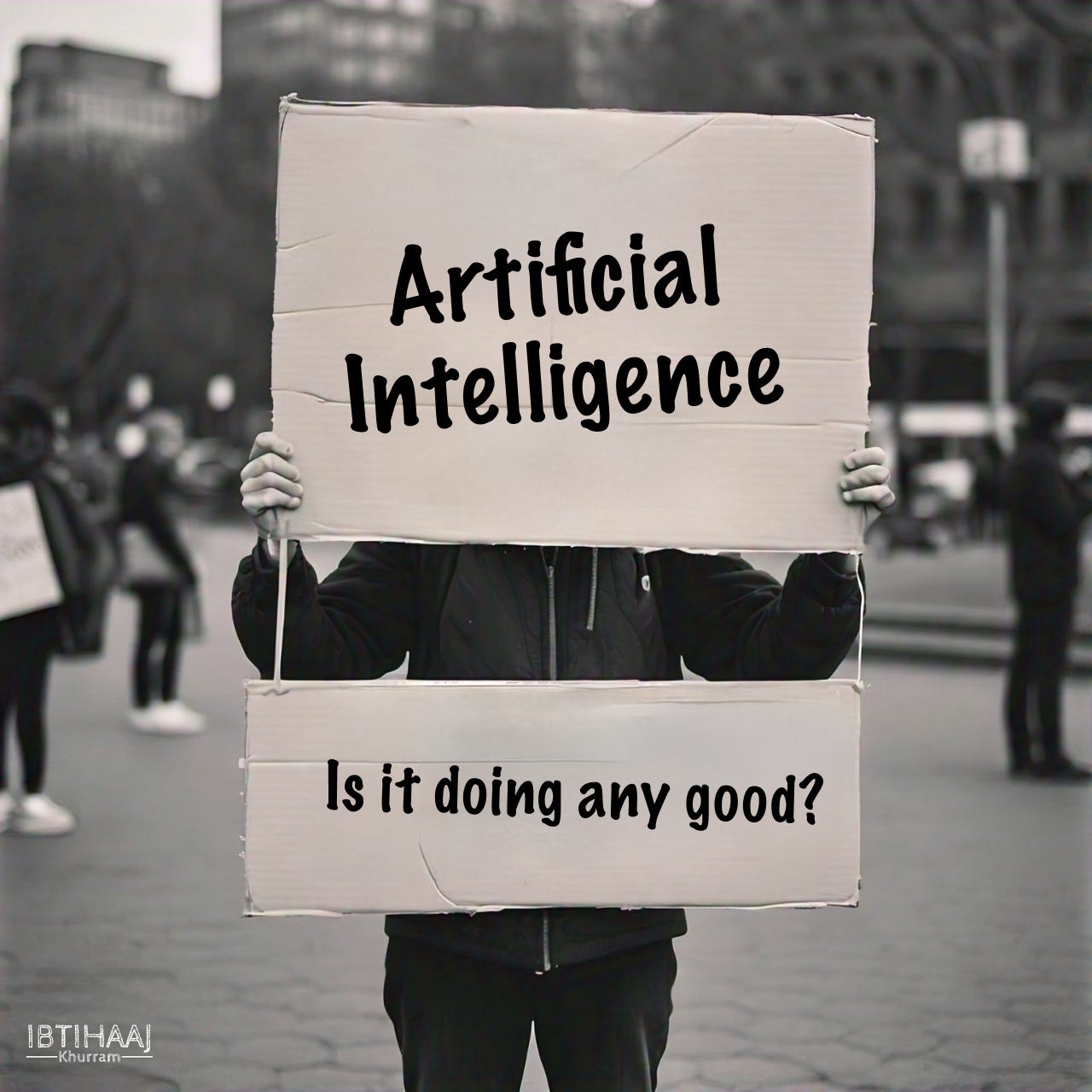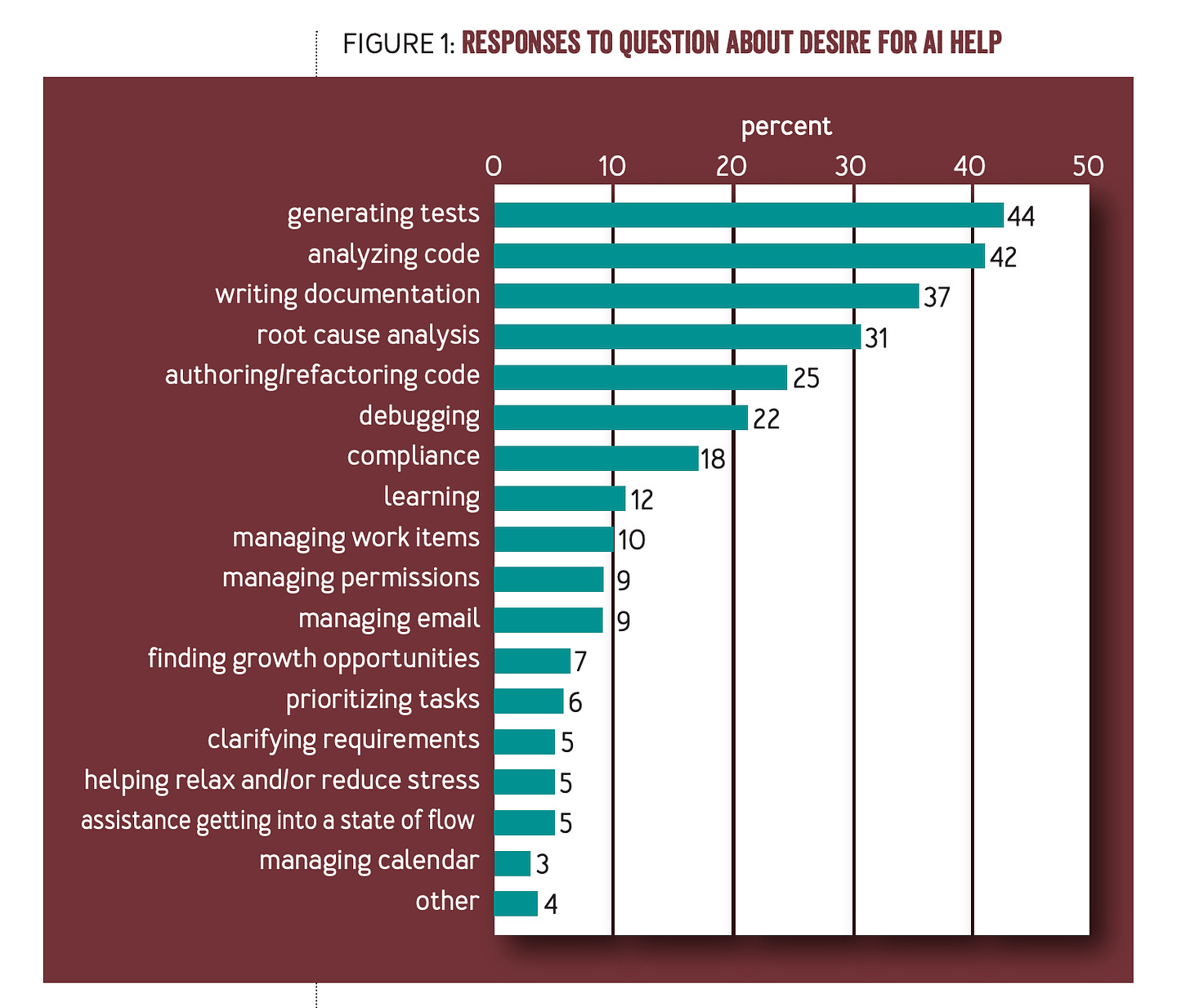In the past few years, the tech landscape has witnessed an AI boom that’s hard to ignore. As someone deeply involved in the startup ecosystem, I have seen firsthand the excitement surrounding the adoption of AI. It’s become the sweetheart of every pitch deck, the cornerstone of countless product strategies. But under the surface, a critical question lingers: Is this enthusiasm for AI truly sparking innovation, or are we merely riding a wave of imitation?

The AI Hype
AI has undeniably become the buzzword of the decade. In today’s fast-paced startup culture, where speed often trumps substance, AI is frequently indicated as the magic ingredient in a product’s recipe for success. But how usually do we pause to question its role? Is AI genuinely solving a problem, or is it being shoehorned into solutions simply because it’s trendy?
It’s become increasingly common to see startups boasting about their AI capabilities, even when it’s not entirely clear how AI fits into the equation. This trend has led to a curious phenomenon: AI being prioritized over actual problem-solving. The result? A flood of “AI-powered” products that sound impressive but often fall short in delivering tangible value to customers. The charisma of AI is powerful, but so is the risk of creating solutions that are more sizzle than steak.
Startup Ecosystem’s AI Race
In the startup world, there’s a tangible sense of urgency—everyone’s racing to integrate AI, driven by the fear of being left behind. This AI arms race has turned the ecosystem into a competitive playground where companies feel compelled to punch an “AI-powered” label on their products, regardless of whether AI genuinely enhances their offerings.
This rush has given rise to an excess of AI solutions that often miss the mark. Instead of focusing on how AI can uniquely solve a problem, many startups are using it as a mask—a way to claim relevance in an increasingly crowded market. The problem is, when AI is added just for the sake of it, we risk creating products that are more about appearance than substance.
Consequences of AI for AI’s Sake
While the excitement around AI is understandable, the consequences of its unchecked adoption can be significant.
Lack of Genuine Innovation: By using AI as a buzzword rather than a meaningful tool, we’re overlooking real-world problems that need solving. The true potential of AI lies in its ability to drive innovation, not just in its ability to generate headlines.
Wasted Resources: Integrating AI where it’s not needed can lead to a substantial waste—of time, money, and talent. Resources that could be spent on genuine problem-solving are instead funneled into maintaining the AI status quo.
Eroding Trust: When AI-powered solutions fail to deliver, it erodes trust—not just in the specific product, but in the broader AI industry. Customers become skeptical, and the credibility of the entire ecosystem takes a hit.
💡 For Techies: You can find more useful insights specifically on how developers want to use AI and their concerns in a paper from Microsoft that I read this week and found very interesting, titled: “Towards Effective AI Support for Developers: A Survey of Desires and Concerns.“
AI for Breakthroughs
AI holds immense potential, and I deeply value its ability to drive innovation and solve complex challenges. However, the demand is more about those monotonous processes, tasks that aren’t often enjoyable. Yes, I heard you. I’m referring to documentation and unit testing. Here are responses from the Microsoft Survey about the desire for AI help.

AI is driving innovation across almost all critical sectors, such as healthcare, finance, and engineering. It is revolutionizing fraud detection in finance, optimizing complex systems in engineering, and improving diagnostic accuracy in various conditions, as well as streamlining medical research. For instance, AI has been instrumental in detecting early signs of diseases like breast cancer [MIT News] with algorithms that often match or surpass human radiologists in precision, reducing false positives, and ensuring timely treatment.

The bottom line is that AI has massive potential to solve complex challenges across multiple domains, bringing about meaningful change in the world.
The Way Forward
For me, AI is a superpower when used wisely, I can’t help but recall the famous Spider-Man saying:
“With great power comes great responsibility.”
As we continue to navigate this AI-infused landscape, it’s essential to take a step back and reflect on our motivations. Are we integrating AI to genuinely enhance our products and services, or are we simply succumbing to the pressure of keeping up with the latest trends?
Let’s refocus our efforts on leveraging AI as a tool for true innovation. This means being thoughtful about where and how we use AI, ensuring it’s always in service of solving a real problem. By doing so, we can unlock AI’s full potential, rather than letting it be reduced to a mere buzzword.
Those developing AI solutions need to have a genuine interest in the outcome, the thinker has to have a skin in the game because there is Artificial Intelligence, but there is no such thing as Artificial Consciousness.
Conclusion
In this AI-driven era, it’s evident that AI technology holds great promise. However, in our eagerness to embrace it, we run the risk of prioritizing hype over substance. The AI paradox—innovation or imitation—serves as a reminder that genuine progress lies not in simply adopting AI, but in harnessing its power to drive meaningful change. We must remember that AI is a tool, not an end in itself. Its true value lies in its ability to enhance, optimize, and transform. By focusing on thoughtful integration and problem-solving, we can unlock AI’s full potential. It’s time to move beyond the hype and embrace AI for what it truly is—a powerful ally in our pursuit of innovation and progress.
As we move forward, let’s not forget the principle:
“For everyone to whom much is given, from him much will be required.”
That’s all folks, If you know someone who might like this read, consider sharing it with them:
I write about tech research, product growth, developer productivity, and engineering excellence every two weeks. Subscribe now to stay in the loop!
— Ibtihaaj
